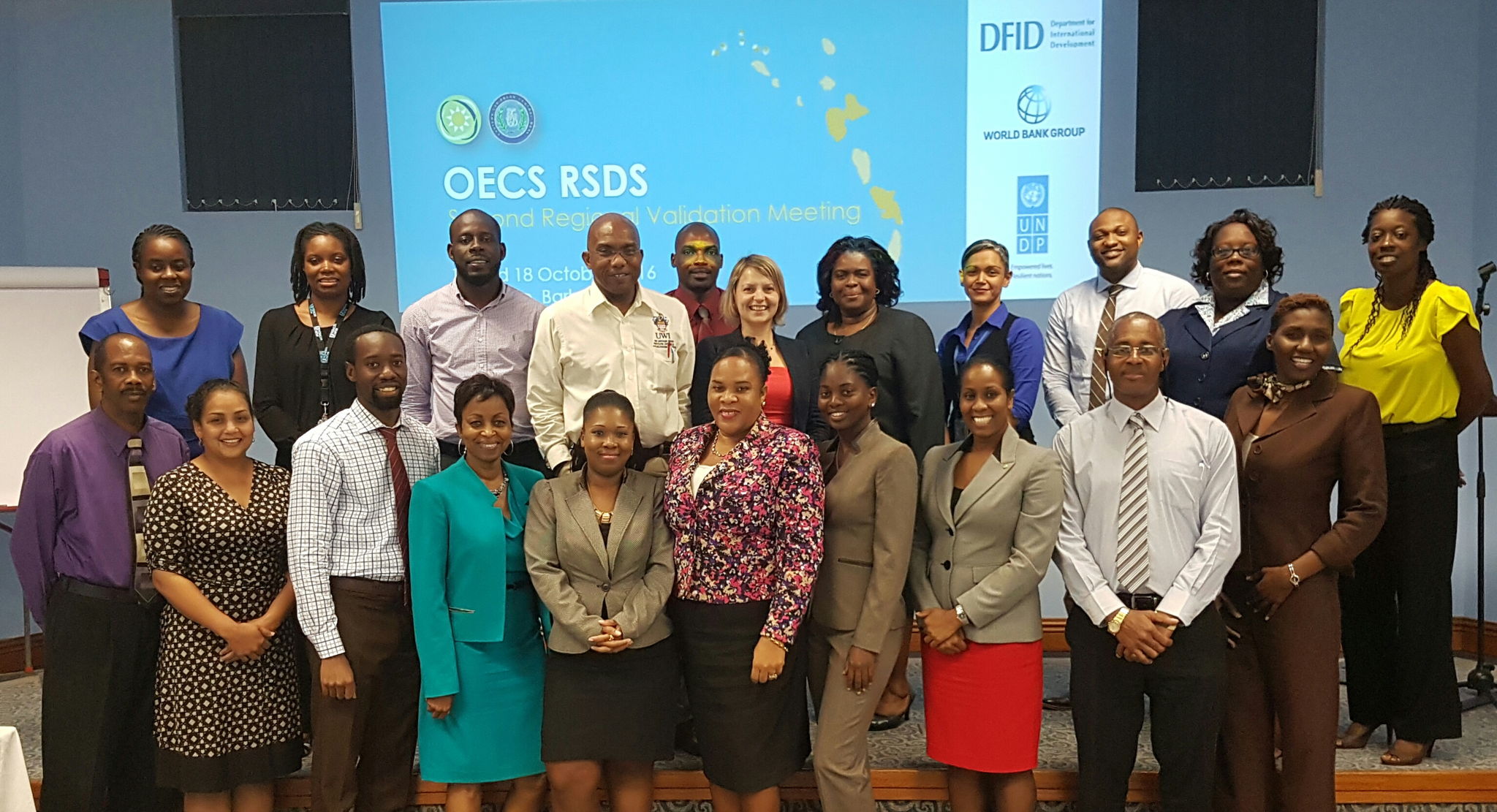A Numbers Game
Interview with Dr. Gale Archibald from the OECS Commission for the St. Lucia Star Newspaper
As the old adage goes, knowledge is power. Without detailed, up-to-date numbers, it’s almost impossible for a country to take stock of its challenges, track its progress and set a course for the future. Information on population growth, workforce capability, housing resources, health issues, education gaps and industry performance — statistics are vitally important to every area of life and a government’s greatest tool in ensuring that it meets the needs of all its citizens.
In a climate of economic scarcity, a well-functioning statistics system is even more necessary as it can ensure that already-stretched budgets are used more efficiently. When times are tough, the public sector has hard choices to make about where funds are most needed and how to allocate dwindling resources in such a way that they will have the greatest impact and deliver long-term benefits.
“Data are very important to empower citizens and hold their government to account,” says Dr Gale Archibald, Head of the Statistical Services Unit at the Organisation of Eastern Caribbean States (OECS) Commission. “Small Island Developing States in particular need data so that they can be efficient, economic and effective when using and allocating scarce financial resources, using statistics to help them design targeted policies.”
Regional efforts
Statistics departments across the region face many challenges trying to plug the gaps in their knowledge. Dr Archibald says that the Eastern Caribbean is hampered by a lack of financial resources, pointing out that the population census undertaken every 10 years can run into the millions for larger OECS countries.
“There are competing priorities for public sector funds. Governments tend to finance things that are visible and tangible, like a school or a hospital. No-one can ‘see’ statistics. The irony though is that statistics are required to inform programmes and policies for better use and allocation of funds.”
Another factor, according to Dr Archibald, is lack of public buy-in. She notes that citizens and businesses tend to wrongly associate data collection with taxation and are therefore reluctant to share their information, particularly as they fail to see the direct benefit.
“Statistics can only be produced when those who are asked to participate and respond to surveys do so. Using statistics to make informed decisions is not observed. It could be because statistics are not available, but it could also be because the habit has not been cultivated. If data culture was sufficiently mature, the demand for statistics would be sounding loud and clear.”
CARICOM has been trying to bring more awareness to this niche field for over a decade, launching the first Caribbean Statistics Day on October 15, 2008. It’s been celebrated every year since, but how many Caribbean citizens know about or mark the occasion?
Statistics Day may have been on the calendar for 10 years, but it wasn’t until last year that CARICOM Heads of Government endorsed the Strategic Framework for the Regional Strategy for the Development of Statistics (RSDS). The 2019-2030 Strategy recognises the importance of statistics in evidence-based decision making, calls for greater allocation of resources to statistics gathering in member states and aligns the RSDS with national and regional goals and benchmarks.
The OECS has its own master plan, formally launched in 2017 and, like CARICOM’s, running through to 2030. The plan focuses on the economy, society and the environment and looks at the national statistical system in each OECS country, data production, data dissemination and data revolution. “The overarching goal is to have social, economic and environment statistics that are available and accessible anytime, anywhere and by anyone,” explains Dr Archibald. “The challenge will be realising our goals in a context where resources for statistical development are reducing.”
Technological transformation
In Saint Lucia, statistics are collected, collated and analysed by the Central Statistical Office of Saint Lucia (CSO). This government agency monitors details such as the inflation rate, unemployment numbers, GDP growth, visitor arrivals, price indices, exports, conviction rates, communicable diseases and education expenditure. In other words, everything needed to paint a picture of Saint Lucia’s citizenry and services.
Former CSO Director Edwin St Catherine recently told the OECS that the agency has worked to shorten data turnaround times, with census results now available within seven months of the survey being undertaken. This was achieved through greater use of technology, according to St Catherine who commented: “We need to ensure that our process is dynamic because we are in a world where technology is changing."
Dr Archibald says statisticians are changing alongside the technology and making the most of the tools available. Online questionnaires are now replacing paper forms, information is being stored in the cloud rather than spilling out of filing cabinets and data is being accessed and downloaded online at the user’s convenience.
The latest innovation set to transform data dissemination is use of Geographic Information Systems (GIS), according to Dr Archibald who says this technology has the power to “bring data alive”. By integrating data into mapping programmes, statistics can now be localised — a person browsing a map of Saint Lucia online could hover their cursor over a certain area and instantly be able to view statistics such as population and crime rate for that locale.
Bringing onboard the next generation
Greater uptake of cutting-edge technology isn’t just helpful for number-crunching. It can also be a means of enticing young people into the field. The OECS uses Statistics Day in October as an opportunity for outreach, going into schools and advocating for careers in the industry which are more diverse than most realise, covering agriculture, education, tourism and the economy.
Dr Archibald says it’s an exciting career, with a lot of depth, but acknowledges that kids must be engaged in the early stages of their educational journey if they are to grasp the possibilities.
“Data science is an emerging and attractive interdisciplinary field, a hybrid of mathematics, software engineering and data. It uses scientific methods, process and algorithms to extract the stories and insights from data. It requires inert curiosity to explore what problems need to be solved and how to present data to support the solution.
To make statisticians and data scientists professions of first choice, we may have to start in kindergarten.”
Link to Original Article on the St. Lucia Star Newspaper's website can be viewed here.
Dr Gale Archibald is Head of the Statistical Services Unit of the Organisation of Eastern Caribbean States (OECS) Commission.


